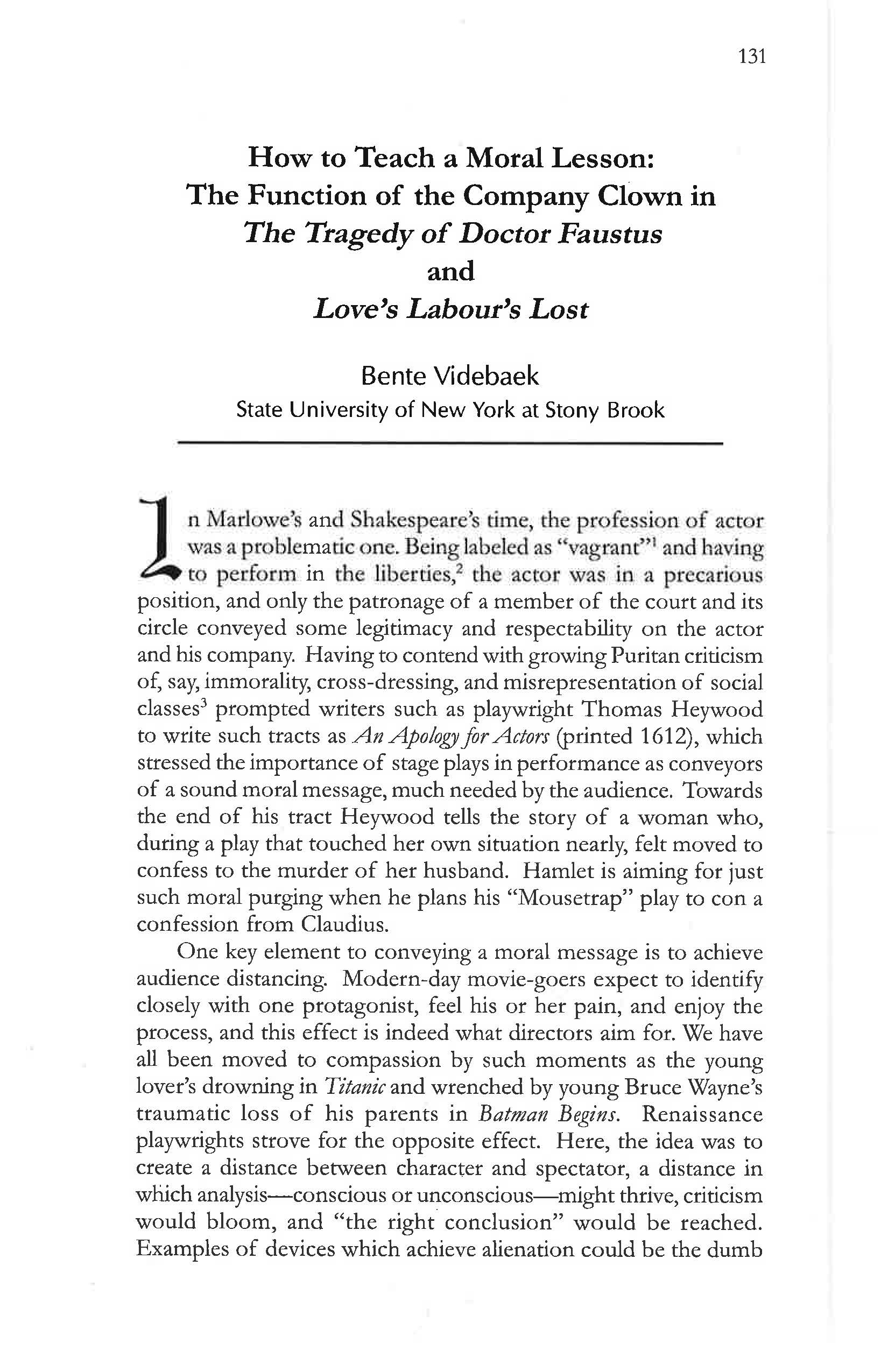How to Teach a Moral Lesson: The Function of the Company Clown in The Tragedy of Doctor Faustus and Love's Labour's Lost
Main Article Content
Abstract
In Marlowe’s and Shakespeare’s time, the profession of actor was a problematic one. Being labeled as “vagrant”1 and having to perform in the liberties,2 the actor was in a precarious position, and only the patronage of a member of the court and its circle conveyed some legitimacy and respectability on the actor and his company. Having to contend with growing Puritan criticism of, say, immorality, cross-dressing, and misrepresentation of social classes3 prompted writers such as playwright Thomas Heywood to write such tracts as An Apology for Actors (printed 1612), which stressed the importance of stage plays in performance as conveyors of a sound moral message, much needed by the audience. Towards the end of this tract Heywood tells the story of a woman who, during a play that touched her own situation nearly, felt moved to confess to the murder of her husband. Hamlet is aiming for just such moral purging when he plans his “Mousetrap” play to con a confession from Claudius.
